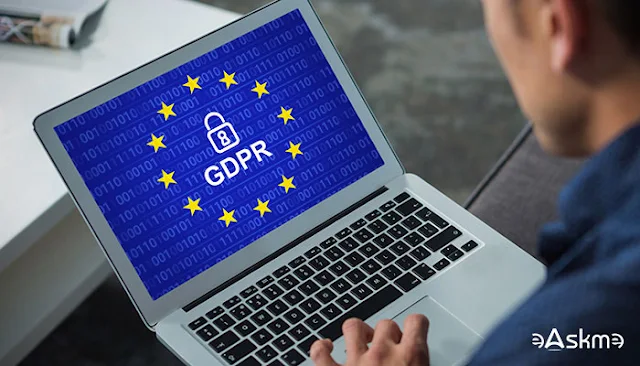General Data Protection Regulation (GDPR) is a new data protection regulation put into place in 2018 by the European Union to protect its citizens' data. GDPR tools are software programs that help you keep your company compliant with GDPR, and they can be used for many purposes.
 |
| What are GDPR Tools?: eAskme |
This blog post will explain what GDPR tools are, how they work and who needs them for what reason.
The regulation applies to all companies or organizations that collect data on people living in EU countries.
It also applies to any company or organization outside the EU which offers goods or services to people living in Europe.
What Is DPIA?
The Data Protection Impact Assessment (DPIA) is a method for identifying risks associated with handling personal data and reducing them as soon as feasible.
GDPR-compliant DPIAs are essential risk mitigation and GDPR compliance tools.
The GDPR requires the use of a DPIA for certain types of data processing activities, such as:
- The systematic and extensive evaluation of personal aspects relating to natural persons is based on automated processing, including profiling, and on which decisions are made about her or him that produce legal effects concerning her or him or similarly significantly affect her or him.
- Large scale monitoring of public areas
- The processing of genetic data, biometric data for uniquely identifying a person, data concerning health or data concerning criminal convictions and offenses.
Who Needs a Compliance Tool?
Businesses and organizations that are processing data need to be compliant with GDPR.
They must use one of the many tools to help protect their customer's data.
The tools are mostly for online usage.
If you are a startup, your business will most likely have to comply with GDPR.
You'll need some form of data protection or privacy policy in place for handling users' personal information, and that is where the tools come in handy.
The web hosting companies also fall under this category as they collect customer data from their services, such as email addresses and payment details when creating an account etc.
Types Of Tools And What They Do:
A few different types of tools can help with GDPR compliance:
- A data protection policy or privacy policy is a document that helps define how your company will protect user data and what measures will be put in place to ensure customer information is not shared without consent.
- Data Encryption - This tool encrypts data so that if it is stolen, the thief will not be able to read it and protect user data when it's being sent or received by ensuring only those who have been authorized can view it.
- Data Loss Prevention - This is software used to prevent accidental data leaks by scanning for sensitive information and blocking it from being sent out.
- A data management solution helps you keep track of where all your customer data is stored and gives you the ability to delete it upon request.
- Email marketing software allows customers to unsubscribe from email lists more easily and gives them control over their shared data with third-party companies.
- Breach Detection - This helps you detect breaches in security early on before they become a bigger issue.
Each of these tools has its benefits, and depending on your needs, one may work better for you than another.
The compliance tools work by scanning your website or application for any non-compliant coding practices.
The tool helps businesses handle users' requests faster by automating key parts of the process – like sending personalized emails, extracting contact from forms and presenting them through dashboards.
It provides an easy-to-use reporting system so your staff can keep track of all incoming contacts.
The Right Tool For Your Company's Needs:
The following are the factors that help you decide which tool is right for your company:
- What kind of data do we have?
- What's the volume of those records?
- How long do they keep them stored on our servers?
- Do we even need to store this data at all?
- Can it be deleted or made anonymous/obscure enough so as not to pose a GDPR compliance risk (e.g., credit card numbers, social security numbers)?
- If yes – how soon should these changes take effect, and how would you monitor if there was regressing Who has access to what kinds of information in your business processes (sometimes called "data mapping"), and under what circumstances can different people access certain information?
It is hard to choose with so many compliance tools available on the market today.
Check out a data privacy company to help you find the best option for your business.
Still have any question, do share via comments.
Share it with your friends and family.
Don't forget to join the eAskme newsletter to stay tuned with us.
Other handpicked guides for you;
















